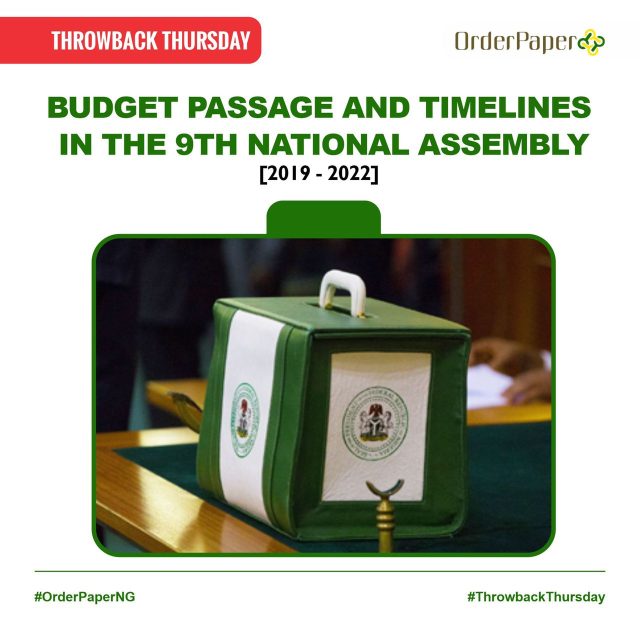A bill to streamline and enshrine timelines in the budgetary process of the country has progressed to second reading in the House of Representatives

A bill seeking to prescribe timelines for the presentation of budget estimates to the National Assembly has passed for second reading in the House of Representatives. The bill also caters for timelines for preparation, planning, the contents, implementation and evaluation of the annual budget.
The piece of draft legislation titled, “a bill for an Act to regulate the budget of the federal government of Nigeria and for related matters” is sponsored by Speaker Tajudeen Abbas (APC, Kaduna) and Rep. Umar Bio (APC, Kwara).
A similar budget bill was vetoed by the President in the 8th assembly
The proposed law, if passed will advance economic development and progress being that the government uses the budget to influence income distribution, provide essential services for its citizens and transform the country through well-thought out investments.
Presenting the details in a lead debate at plenary Tuesday, Rep. Bio argued that “for a budget to achieve its purpose, special attention must be paid to the budget process from the moment the budget is birthed, prepared, presented to the Federal Executive Council and to the Nation Assembly, assent by the President and up to implementation and monitoring stage of the budget. Once the budget process is faulty, the budget itself is doomed even before it is passed.”
He lamented that “in Nigeria, the budget process is confronted with a number of issues. From bloated or overpriced budgets, to irregular circles coupled with annual late presentation of budget estimates to the National Assembly. The preparation of the budget, the content, implementation, issues relating to borrowing and what for are other issues not properly addressed in the existing laws. Some of these arise from the gap in the constitution.”
The lawmaker referenced section 81(1) of the 1999 constitution (as amended) which says the President is to present the budget estimate to the National Assembly but did not define timelines, saying “this makes this exercise discretional for both the Executive and the Legislature.
“In the 8th National Assembly, the 2016 budget was signed in May of 2016. The 2017 and 2018 budget were signed in May. Whilst the financial year returned to January to December in the 9th Assembly, it still does not have a legal backing.
“The Bill, if passed, will also define the fiscal year and the limit of deficit and specifically spell out the reason for borrowing. Arising from the existing budget challenges already highlighted above and the current economic challenges confronting us as a people, coupled with the decaying state of infrastructure across the country, we can not undermine the importance of the bill.”
Why the annual budget matters
The annual national budget details the spending and revenue projections for the entire country and also provides direction for soci-economic activities. The private sector, just like many other segments of soceity, depends on the national budget to plan their activities. More often than not, delays in the enactment of the budget impacts the entire economy as stakeholders look to be guided in their decision-making.
STAR Check: Nigerians, especially constuituents of Rep. Bio, can track his legislative activities andachievements here.
